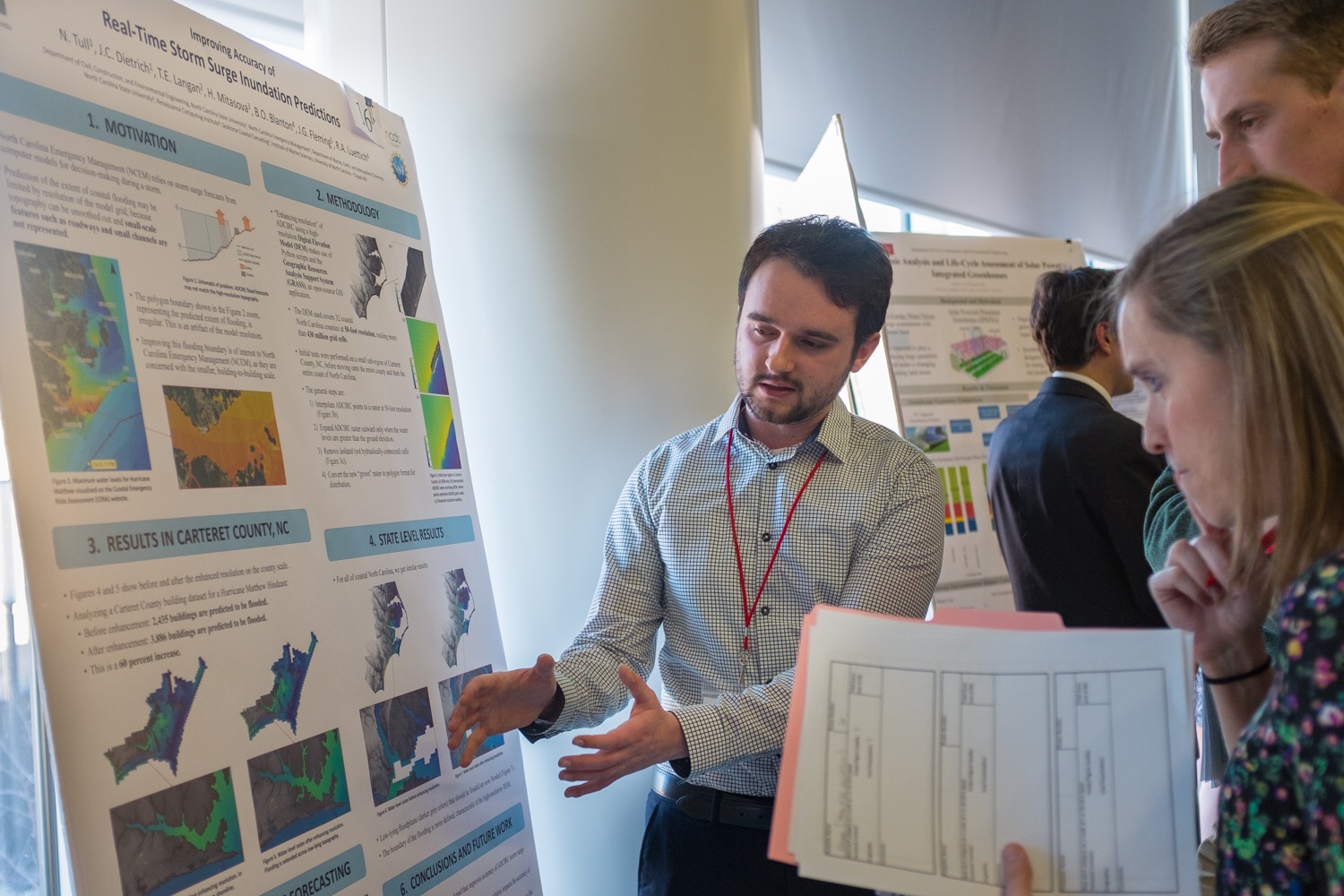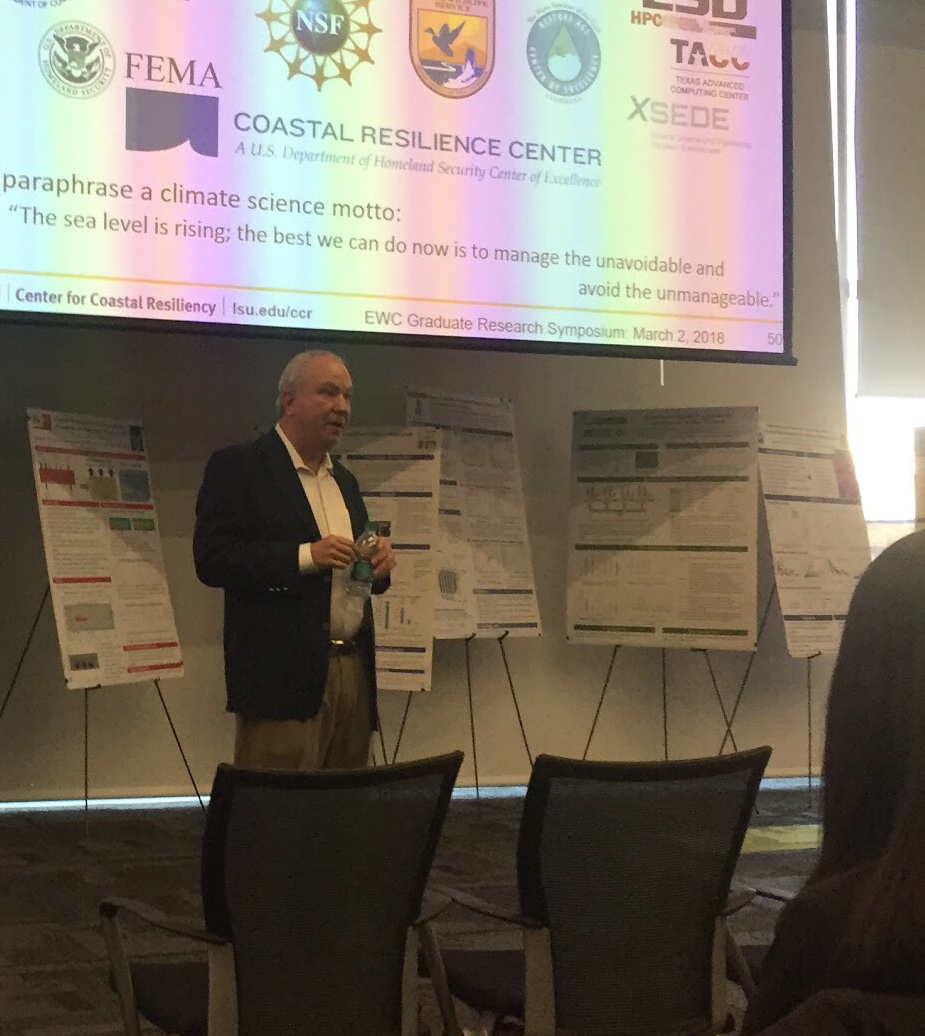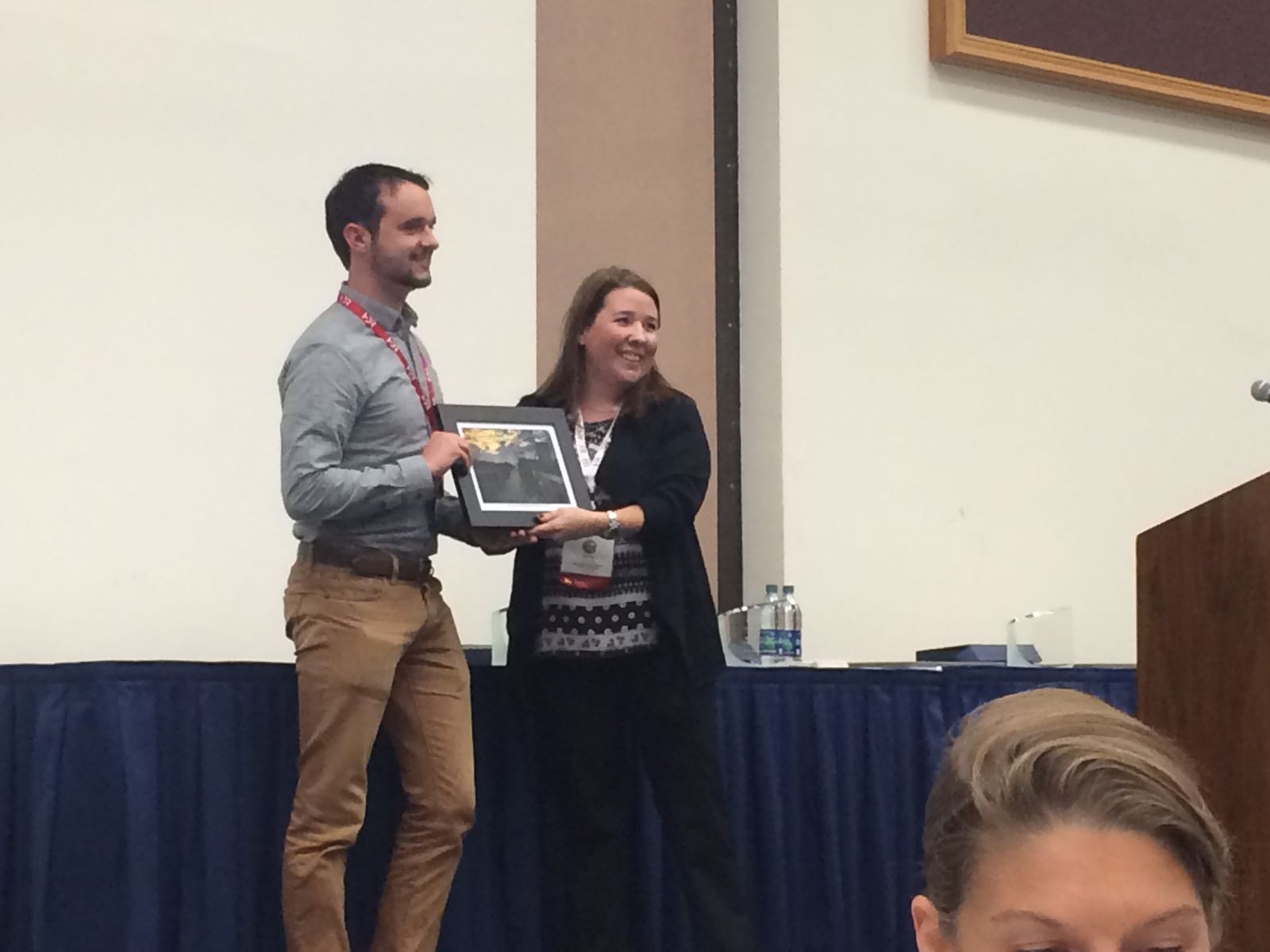Recipients of the Outstanding Teacher Award become members of the Academy of Outstanding Teachers for as long as they remain NC State faculty. Recipients are recognized at the Teaching Awards Ceremony in the Spring, and their names are published in the NC State Bulletin and Commencement Program.
This is a great honor, and it reflects Casey’s hard work to implement active, team-based learning in the undergraduate course in fluid mechanics, as well as to establish a set of graduate courses in coastal engineering. He has enjoyed working with students at all levels at NC State.

Casey Dietrich accepts the award at the NC State Teaching Awards Ceremony, with (left) Rudi Seracino, Professor and Associate Head for Undergraduate Programs, and (right) Duane Larick, Senior Vice Provost for Academic Strategy and Resource Management.








